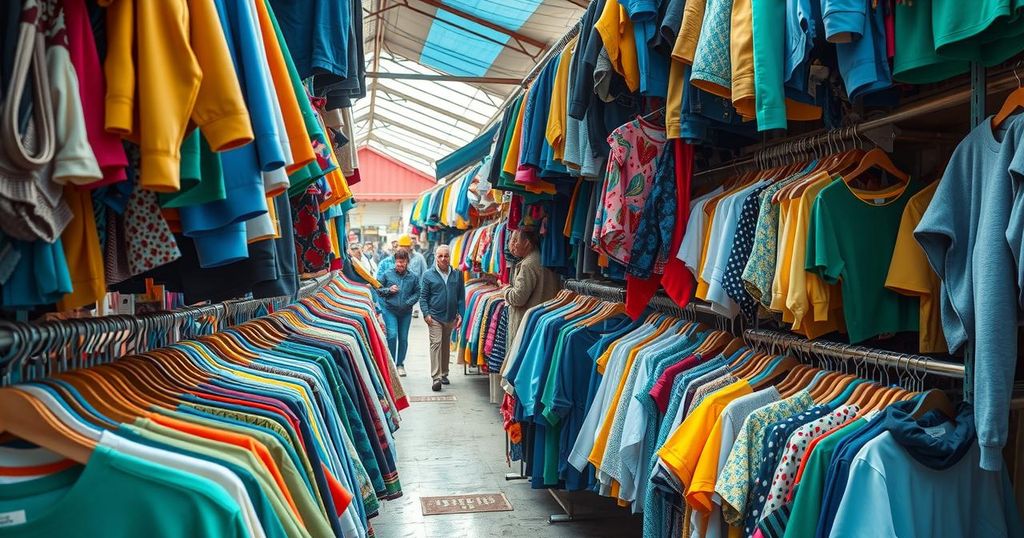Mozambique’s Second-Hand Clothing Industry: A Crucial Economic Contributor

The second-hand clothing market in Mozambique provides over 200,000 jobs and supports approximately one million people, contributing significantly to the economy and public finances. The industry offers average earnings of $650 per month for sellers and fulfills the clothing needs of around 80% of the population, all while underscoring the importance of strategic collaborations in textile production.
A recent study by Consulting For Africa and Abalon Capital Limitada, commissioned by ADPP Mozambique, reveals that the second-hand clothing industry in Mozambique plays a crucial role by providing over 200,000 jobs, which support approximately one million individuals. This sector is deemed a pivotal survival alternative in the country’s economy, acting as a catalyst for growth and significantly impacting daily life.
The report indicates that established sellers earn an average of $650 (€598) monthly, significantly higher than the national minimum wage of $90 (€83). Additionally, approximately 80% of the population relies on this industry for their basic clothing needs, contributing around $35 million (€32.2 million) annually in import taxes for these garments.
It was noted that the majority of second-hand clothing vendors are women and youth, who dominate the main urban markets alongside food sales. The study estimates that Mozambique imports roughly 36,750 tonnes of second-hand clothing each year, with demand growing at a rate of 3.5% year-on-year. This indicates that every tonne of imports supports about 7.8 jobs, both directly and indirectly.
The report emphasizes that this market provides affordable and diverse clothing to millions living in poverty, highlighting Mozambique’s poor ranking on the United Nations Human Development Index, coming in at 183rd out of 191 countries. With approximately 25% of the population unemployed, the report underscores the industry’s importance as a vital source of employment, clothing, and tax revenue.
The findings caution against the potential negative disruptions to this market, which may severely affect a population already facing high poverty levels. It articulates the need for revitalizing Africa’s textile sector, noting that substantial investment is required to foster local production capable of competing with nations such as China, India, and Bangladesh.
The study argues against viewing the second-hand clothing trade and local textile industries as competing forces, proposing instead that both can coexist and thrive. It forecasts that, without significant improvements in national economic growth, second-hand clothing will remain the principal source of affordable apparel in Mozambique for the following decade. The report recommends strategic collaborations among African nations to enhance competitive advantages in this sector.
In conclusion, the second-hand clothing industry is a vital component of Mozambique’s economy, offering critical employment and basic necessities to a substantial portion of its population. This sector not only aids in mitigating poverty but also contributes significantly to public finances through import taxes. Furthermore, promoting the coexistence of second-hand sales and local textile production may enhance overall economic resilience in the face of ongoing challenges.
Original Source: clubofmozambique.com








